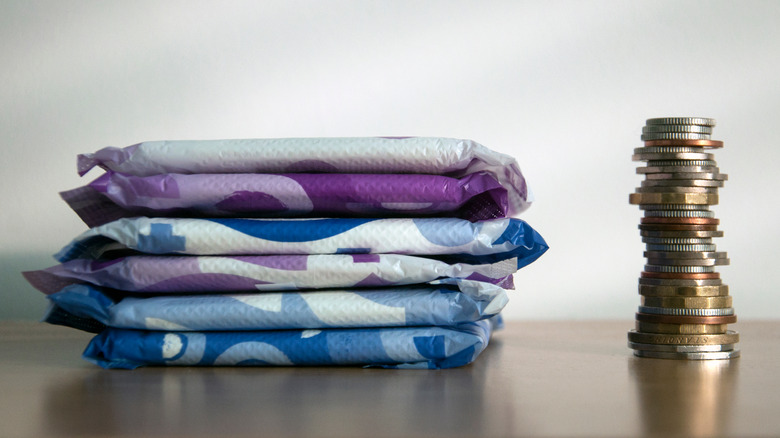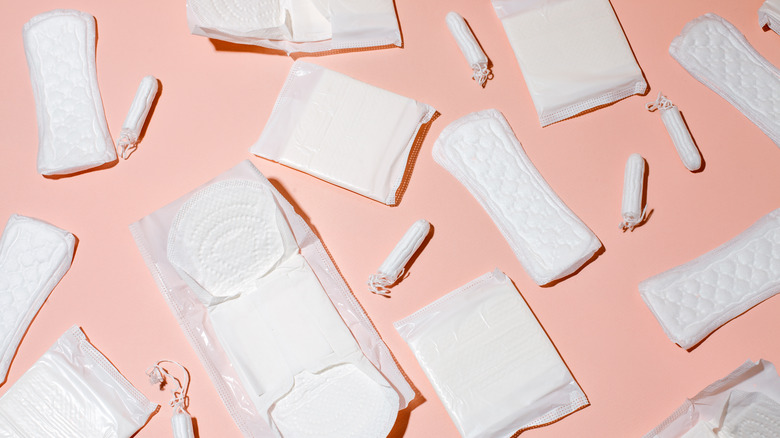How The Pandemic Led To A Rise In Period Poverty
According to Medical News Today, period poverty is a condition in which women are unable to gain access to supplies needed during their menstrual cycles such as pads, tampons, menstrual cups, and other period products. Period poverty affects 500 million women globally and 16.9 million Americans.
During the onset of the pandemic, period poverty continued to be a substantial issue in the United States. When Marni Sommer, a doctor of public health and researcher on menstruation, noticed how quickly toilet paper was flying off the shelves, she realized menstrual products were disappearing just as fast (per Healthline). With that, her colleagues at the Columbia University Mailman School of Public Health joined her in discovering just how much menstruating women were impacted by the pandemic. Together, they collected data from nearly 1,500 menstruating women in the U.S. from March to October 2020. Their study, which was published in the American Journal of Public Health, found that women impacted by income loss were at a 3.6 times higher risk of period poverty than those who weren't impacted.
Research conducted by U by Kotex produced similar results. They found that period poverty increased by 35% between 2018 and 2021. Of all respondents, 27% said the pandemic made accessing period products difficult and 65% said they couldn't afford them.
Eradicating period poverty
In the 2021 study by U by Kotex, Jennifer Gaines, Program Director at the Alliance for Period Supplies, said, "We can end period poverty in the U.S. by increasing awareness of the issue, expanding community-based programs that help people in need, and advocating for changes in public policy." In efforts of raising awareness, The Alliance for Period Supplies created Period Poverty Awareness Week which is held annually in May (per Healthline).
Legislation is also a considerably important area of focus. Healthline says that menstrual products are not included in public assistance programs such as Supplemental Nutrition Assistance Program (SNAP) or Special Supplemental Nutrition Program for Women, Infants, and Children (WIC). Gaines told Healthline that educating legislators and elected officials will help move toward passing bills in which period products are free at school as well as in prisons and jail systems. There are currently 27 states in which period products are subject to a sales tax. Organizations such as Period Equity are working on getting period products to be tax-exempt.
If you or someone you know is facing period poverty, call 211 for local assistance or visit 211.org. The Alliance for Period Supplies also lists non-profit organizations that collect, store, and distribute period products across the country at allianceforperiodsupplies.org/allied-programs.


